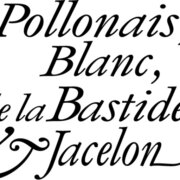Best Art & Cultural Property Law Lawyers in Trinidad and Tobago
Share your needs with us, get contacted by law firms.
Free. Takes 2 min.
Or refine your search by selecting a city:
List of the best lawyers in Trinidad and Tobago
About Art & Cultural Property Law in Trinidad and Tobago
Art & Cultural Property Law in Trinidad and Tobago encompasses a range of legal issues that affect the creation, use, protection, and transfer of cultural and artistic artifacts. This area of law addresses matters such as intellectual property rights, cultural heritage protection, repatriation of cultural artifacts, and compliance with international treaties and conventions. Trinidad and Tobago is a nation rich in cultural diversity and artistic expression, making this an important and evolving field of law.
Why You May Need a Lawyer
The intricacies of Art & Cultural Property Law mean that individuals and organizations may need legal assistance in numerous situations, such as:
• Protecting intellectual property rights for original works of art or cultural performances.
• Navigating disputes over the ownership or authenticity of cultural artifacts.
• Ensuring compliance with international conventions related to cultural property, such as UNESCO treaties.
• Addressing cases of illegally exported cultural property.
• Facilitating the repatriation of artifacts to their country of origin.
• Advising institutions like museums or galleries on ethical policies for collections and exhibitions.
Local Laws Overview
In Trinidad and Tobago, several key legal frameworks govern Art & Cultural Property Law:
• The Copyright Act (Chapter 82:80) ensures that creators of artistic works have the right to control the use of their creations.
• The National Trust of Trinidad and Tobago Act provides for the preservation of historic sites and artifacts.
• Customs legislation impacts the import and export of cultural goods, set by the Customs Act (Chapter 78:01).
• Compliance with international agreements such as the UNESCO Convention on the Means of Prohibiting and Preventing the Illicit Import, Export, and Transfer of Ownership of Cultural Property is expected.
Frequently Asked Questions
What constitutes cultural property?
Cultural property includes movable or immovable property of great importance to the cultural heritage of a nation, including artworks, historical artifacts, and monuments.
How do I protect my artwork from unauthorized reproduction?
Registering your artwork with the Trinidad and Tobago Intellectual Property Office can provide legal grounds to prevent unauthorized reproduction and distribution.
What should I do if I believe I have found cultural artifacts?
If you uncover objects of potential cultural significance, you should report your findings to the relevant authorities, such as the National Trust or local museum partners, to ensure legal compliance.
Can cultural property be legally exported from Trinidad and Tobago?
Yes, but it often requires permission from the relevant authorities to ensure compliance with both local and international laws governing the export of cultural property.
What are the implications of owning cultural property from another country?
Ownership of such property must comply with international regulations and the laws of the country of origin. It is advisable to consult a lawyer if there are concerns regarding legality.
How can museums legally acquire new artifacts?
Museums must conduct thorough due diligence to ensure that the acquisition of any artifact adheres to ethical guidelines and complies with international and local property laws.
What are the penalties for illegally trading in cultural property?
Penalties can include severe fines, imprisonment, and the forfeiture of cultural goods involved in illicit trade.
Are there any protections specifically for indigenous cultural expressions?
Yes, certain laws provide protection for the traditional cultural expressions of indigenous groups, aiming to preserve and prevent exploitation of their cultural heritage.
What kind of legal support is available for repatriation claims?
Legal professionals specializing in cultural property law can guide the repatriation process and help navigate diplomatic and legal channels to recover artifacts.
What role do international treaties play in Art & Cultural Property Law locally?
International treaties like the UNESCO Convention provide a framework for local laws, informing the protection and export of cultural property and promoting international collaboration.
Additional Resources
• Trinidad and Tobago Intellectual Property Office: Responsible for registering and managing copyrights and trademarks.
• National Trust of Trinidad and Tobago: Works on preserving sites and artifacts significant to the nation's heritage.
• Ministry of Community Development, Culture, and the Arts: Implements cultural policy and provides support for cultural and artistic initiatives.
• UNESCO: Offers guidelines and resources on the protection of cultural property and international cooperation.
Next Steps
If you require legal assistance in Art & Cultural Property Law, consider the following steps:
• Identify your specific legal needs to engage the right area of expertise.
• Contact a lawyer specializing in Art & Cultural Property Law who can offer personalized advice based on your circumstances.
• Consult with relevant governmental bodies or cultural institutions for guidance or referrals to legal professionals.
• Research and consider joining professional networks or cultural advocacy groups to stay informed about developments in this legal field.
Lawzana helps you find the best lawyers and law firms in Trinidad and Tobago through a curated and pre-screened list of qualified legal professionals. Our platform offers rankings and detailed profiles of attorneys and law firms, allowing you to compare based on practice areas, including Art & Cultural Property Law, experience, and client feedback.
Each profile includes a description of the firm's areas of practice, client reviews, team members and partners, year of establishment, spoken languages, office locations, contact information, social media presence, and any published articles or resources. Most firms on our platform speak English and are experienced in both local and international legal matters.
Get a quote from top-rated law firms in Trinidad and Tobago — quickly, securely, and without unnecessary hassle.
Disclaimer:
The information provided on this page is for general informational purposes only and does not constitute legal advice. While we strive to ensure the accuracy and relevance of the content, legal information may change over time, and interpretations of the law can vary. You should always consult with a qualified legal professional for advice specific to your situation.
We disclaim all liability for actions taken or not taken based on the content of this page. If you believe any information is incorrect or outdated, please contact us, and we will review and update it where appropriate.
Browse art & cultural property law law firms by city in Trinidad and Tobago
Refine your search by selecting a city.














